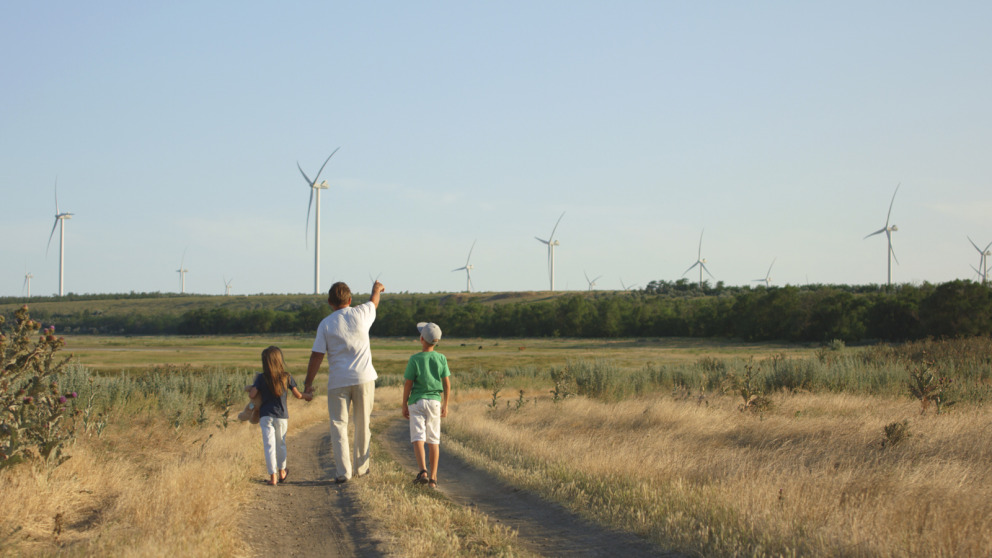Europeans Want Decentralized Power Generation and Low Prices
13.03.2024
Although a majority of Europeans support the energy transition in principle, local opposition to necessary infrastructure projects is on the rise. What could be done to smooth the future growth of renewables in Europe? In a new study, researchers have identified the preferences of citizens in Denmark, Germany, Poland and Portugal. In all four countries, citizens expressed a clear preference for low electricity prices, less dependence on electricity imports, and favour solar power. Crucially, the study revealed that respondents were also willing to compromise and were prepared to accept trade-offs if these enabled them to secure more preferred qualities in the energy system.

"We wanted to capture citizens' preferences as realistically as possible and chose a conjoint experiment as our research method, which involves weighing up the options. We refrained from asking people’s opinions on individual aspects such as technologies, location and costs, but rather confronted the respondents with different profile options and then wanted to know how they would decide in each case. This approach acknowledges that people may struggle to provide reliable answers to direct queries regarding a future system they are not familiar with," explains lead author Franziska Mey from the Research Institute For Sustainability – Helmholtz Centre Potsdam. 4,103 people were surveyed in four countries for the study.
Price and share of energy imports matter most
To identify citizen preferences for different types of renewable power futures, the researchers presented six system attributes known to affect project and policy acceptance for the energy transition: the dominant technology, land requirements, the level of electricity imports into the region, household electricity pricing, expansion of transmission grid capacity and the ownership of energy supply assets (i.e. whether assets are publicly or privately owned). The survey revealed that electricity pricing has by far the greatest impact.
"The electricity price attribute triggered the largest effects, with reactions to increasing prices being more than twice as strong as reactions to increasing shares of imports. Follow-up questions confirmed this preference and made it clear that our future electricity system needs to be both cost-efficient and socially equitable," says Franziska Mey. A low share of electricity imports ranked second: If citizens could decide, the future electricity system would be decentralized, based on a supply with a high share of rooftop solar energy, community-owned, and would not significantly rely on imports. When it came to the choice of technology – which ranked third as a priority – respondents preferred solar over wind power, with rooftop solar systems gaining the highest approval.
In Germany and Denmark, which are similarly advanced in the energy transition, very similar preferences were evident. In Poland and Portugal, the import share was rated as less important. Poland differed particularly in terms of price preferences. This is perhaps due to the comparatively low price of electricity in Poland (€0.15/kWh in 2021; Germany: €0.32/kWh in 2021).
Citizens' preferences should be accounted for in energy system models
The findings of this study also show that citizens are willing to make trade-offs. For example, by weighing less preferred aspects such as expanding wind power generation or a high share of imports against lower prices. This makes it possible to develop very different systems with a similar degree of utility.
The findings of this study can be used to improve energy models used to support decision-making on the electricity system of the future. “Today, energy models are often used that focus on technologies and economic aspects but which fail to sufficiently account for social aspects such as citizens' preferences. All too often, people's opinions are surveyed after scenarios have been created. Our research enables the direct integration of citizens' preferences into energy models and thus into the design of scenarios, thereby contributing to a fairer energy transition," says co-author Tim Tröndle (ETH Zurich). As the authors note, opinions change over time and surveys should ideally be conducted at regular intervals.
Franziska Mey, Johan Lilliestam, Ingo Wolf, Tim Tröndle, Visions for our future regional electricity system: Citizen preferences in four EU countries, iScience, 2024, 109269, ISSN 2589-0042,
https://doi.org/10.1016/j.isci.2024.109269.
Contact

